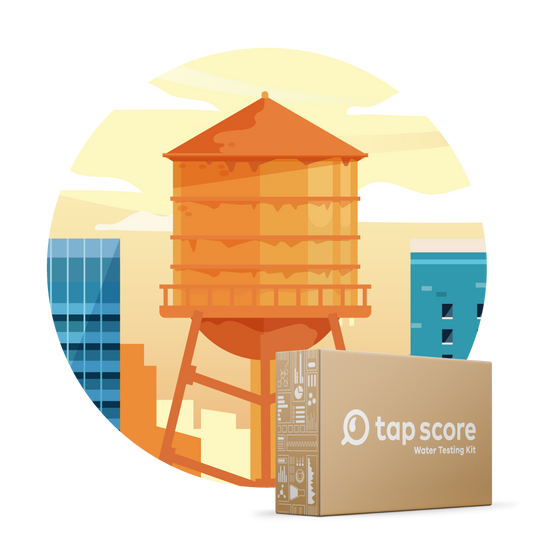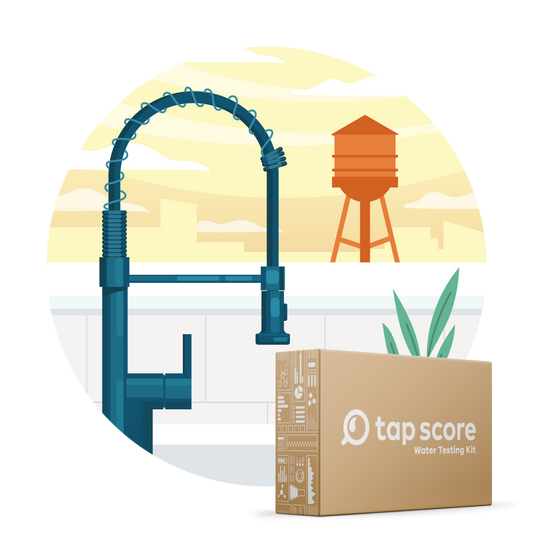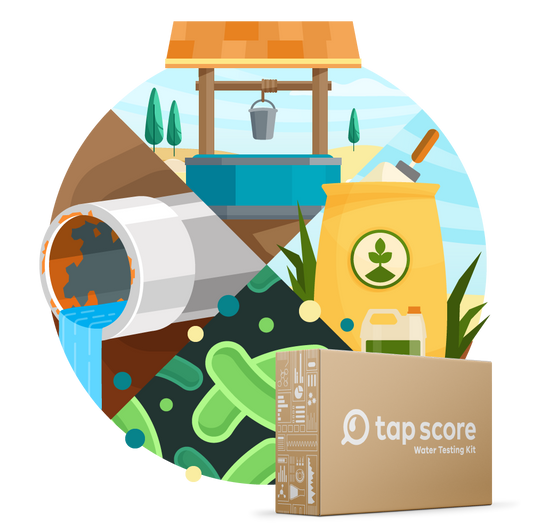
How Water Quality Impacts Your Fruits and Vegetables
Our blog is written by real experts— not AI. Each guide is carefully reviewed and updated based on the latest research. Plus, with no affiliate links, you can count on unbiased insights you can trust.
Water quality can impact your plants in a variety of ways, and this is even more important when it comes to growing fruits and vegetables. The things you grow in your vegetable garden presumably make it into your body. This not only means that clean water impacts your plants’ health, but it can have an effect on your health, as well.
That's why we've prepared a guide to choosing the right water for your vegetable garden.
Table of Contents:
- How Water Quality Impacts Your Vegetable Garden
- What Type of Water Should You Use to Water Your Plants
- Other Factors Influencing the Quality of Your Fruits and Vegetables
- What's the Takeaway?
How Water Quality Impacts Your Vegetable Garden
Just as food nourishes our bodies, water serves as the lifeblood for plants. Plants absorb water through their roots that subsequently moves through their vascular system. As water disperses through a plant’s leaves, stems, buds, flowers, and fruit, it carries with it a variety of crucial nutrients, functioning similarly to the human circulatory system.
However, just like water carries the vital elements throughout a plant, it also may carry contaminants. These contaminants can be biological (like microbes) or chemical (like heavy metals and PFAS compounds). While contamination is less of a concern for ornamental plants, fruits and vegetables given poor quality water can directly impact your health.
When it comes to contamination that causes outbreaks of disease, the concern is greatest regarding leafy vegetables that tend to be eaten without cooking.
What Type of Water Should You Use to Water Your Plants?
From tap water to bottled water, there can be a lot of confusion surrounding the best water for growing fruits and vegetables. We’re here to clarify what water leads to the healthiest plants and the healthiest you.
The first thing we want to note, however, is that the parameters of what is "safe" for plants are different from what is “safe” for human consumption. The next thing to remember is that, no matter what source you use to supply your garden with water–temperature matters. Our tip: avoid extremes. Exceedingly cold water can lead to root shock, while excessively hot temperatures can burn the plant.
Municipal Water
A common concern people have about using city water when irrigating their vegetable gardens is the added chlorine. If you receive your water from a public water supplier, it is highly likely that your tap water contains some amount of the disinfectant (up to 4 parts per million).[1] Chlorine serves as an effective means of inactivating pathogens in drinking water, but many gardeners fear that it will also eliminate many of the beneficial microbes in the soil. However, there are two key factors that do not make chlorine a major threat to microorganism populations:
- Microorganisms reproduce at such a rapid rate that—even if chlorine kills some of the microbes–their populations can easily rebound in a short amount of time if you have healthy soil quality.
- When chlorinated water is poured onto soil, the chlorine reacts away at the surface and does not usually travel to the beneficial microorganism colonies that live in the lower soil layers.
While the average chlorine concentration in tap water (up to 4 parts per million) has not been shown to do lasting damage to plants, chlorine toxicity is still possible. A tell-tale sign that your fruits and veggies may be suffering from too much chlorine exposure is if their leaves appear burnt.
How can you remove chlorine from your tap water? An easy (and inexpensive) fix is to let the water sit for a day or two in an open container. This allows the chlorine to vent in gas form.
Note: If your water contains chloramines, this method will not work. In order to eliminate these chlorine/ammonia compounds you must use an active removal system (such as a catalytic carbon filter).
If you are concerned about other contaminants in your water—like heavy metals—we recommend investing in a water filter, especially if you use your tap water for drinking! Check out our guide to water filters to help you make the right choice—we know it’s confusing!
One rule to follow: water that has passed through a water softener should not be used for horticulture. It is likely to be high in potassium or sodium. Elevated levels in either can build up in soil over time and high salt levels can cause your plant to die of thirst.
Well Water
Well water begins as rain and snowmelt, then makes its way into your well by filtering through the ground. As it soaks through the soil, it can pick up a variety of contaminants depending on what chemicals or pathogens are present.
Evidence on how heavy metals impact vegetables suggest that some plants take up metals more readily than others. For example, scientists have found elevated levels of arsenic in California wines due to grape vines taking-up naturally occurring arsenic from soil and groundwater.[2]
Our suggestion: if you have a well you should test it and consider testing your soil quality, too.
Bottled Water
There are a lot of myths surrounding the health benefits of bottled water. Despite what you may think, bottled water is not always cleaner or safer than tap water. Shockingly, about ~25% of bottled water appears to come just from tap water with or without added treatment.[3]
Our suggestion: considering both the financial and environmental costs of bottled water–tap water tends to be a better choice for your plants.
Other Factors Impacting Your Fruits and Veggies
Prior to selecting a certain type of water to irrigate your fruits or vegetables, it is best to gather as much information as possible. That means testing your water (whether it is city or well).
Public Water Systems
Private Well Owners
While water quality can have impacts on the overall plant health, an even more important factor is soil composition and quality. The balance of pH, nitrogen, phosphorus, carbon, and oxygen can significantly dictate the health of your plants. For more information regarding soil quality and ways to test it, you can reach us at support@mytapscore.com.
What’s the Takeaway?
- Contaminants in your water can impact both the health of your plants and your health
- Water treatment systems than can help make your tap water safe for your garden
- Tap Score can help you test your city or well water for contaminants known to affect plants in addition to hundreds of others
Sources and References
▾- Water Disinfection with Chlorine and Chloramine | CDC
- Arsenic In California Wines: Should Drinkers Be Concerned? | NPR
- Bottled Water vs. Tap Water | NRDC
- Water Quality Guidelines for Vegetable and Row Crops | UC Davis
- Key Factors in Vegetable Production | Texas A&M
- Testing Water For Plants – How To Test Water For Gardens | Gardening Know How
- Keep food safety in mind when planning vegetable garden | Newstimes
- Irrigation Water Quality for Leafy Crops: A Perspective of Risks and Potential Solutions | NCBI
- Water Quality Determines Plant Health | UWYO
-
About Food Safety | CDC
- Soils & Plant Nutrients | NC State









